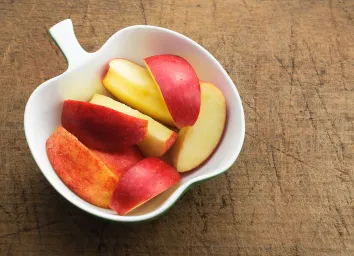What Happens to Your Body When You Eat The Same Foods Every Day
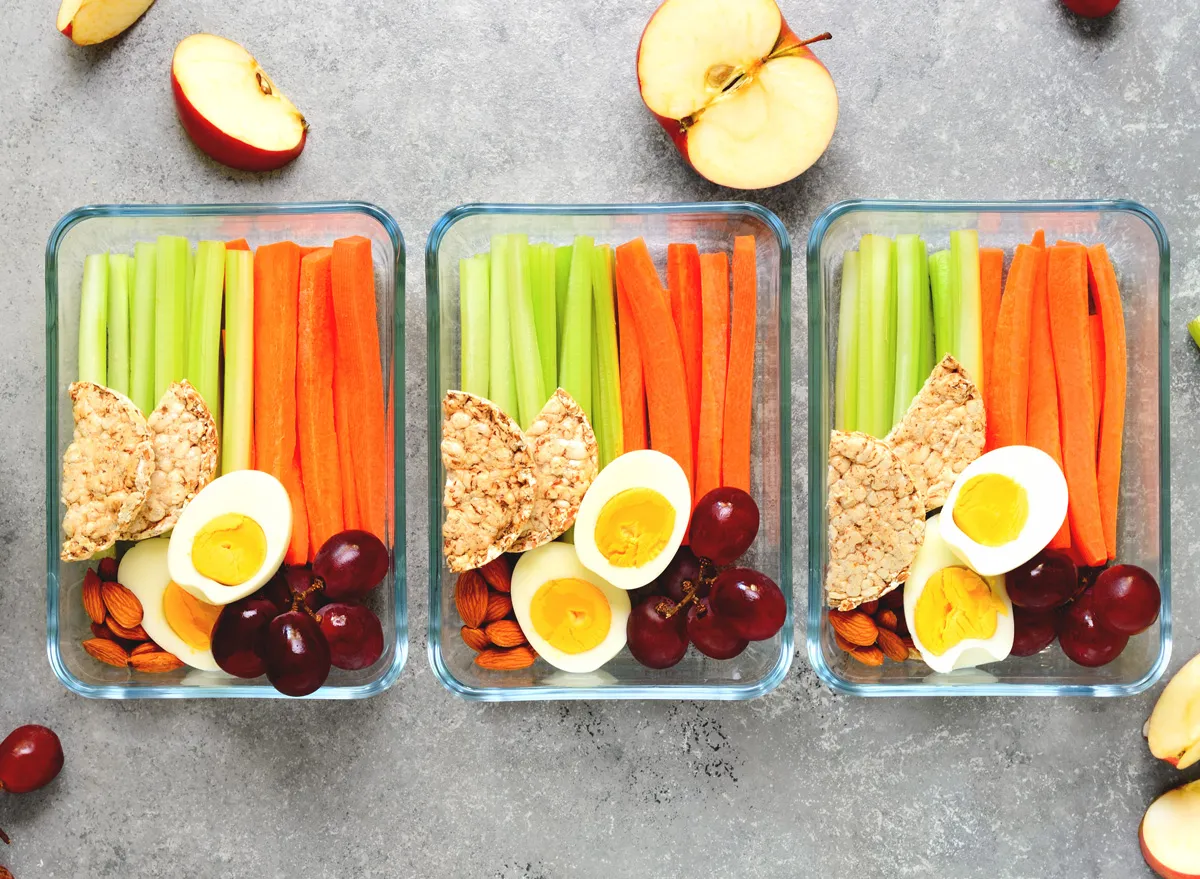
Despite what widespread healthy eating wisdom would have us believe, variety isn’t necessarily the spice of life when it comes to diet, and I’m living proof: I eat pretty much the same thing (nearly) every day. And if you’ve ever wondered what eating the same foods every day does to your overall health, well, it’s not as “bad” as you may think.
Now, I’m not one of those people who eats nothing but cheesy potatoes, nor am I a Soylent bro. The fact of the matter is, I love food. In fact, food is my career. And whether I’m reviewing restaurants, testing recipes, visiting cheese producers, or (COVID-permitting) introducing tourists to some of Paris’ best pastry shops, a lot of what I eat is delicious—but far from the most balanced or nutritious. To counter-balance this, when I’m at home, I try to stick to a healthier routine, and for me, a healthy routine is not so varied.
But guess what? According to experts, that’s OK—with a few caveats.
So what exactly happens when you eat the same foods every day? You might just be surprised. And while you’re making better-for-you changes, be sure to try out any of the 21 Best Healthy Cooking Hacks of All Time.
It can help you lose weight.
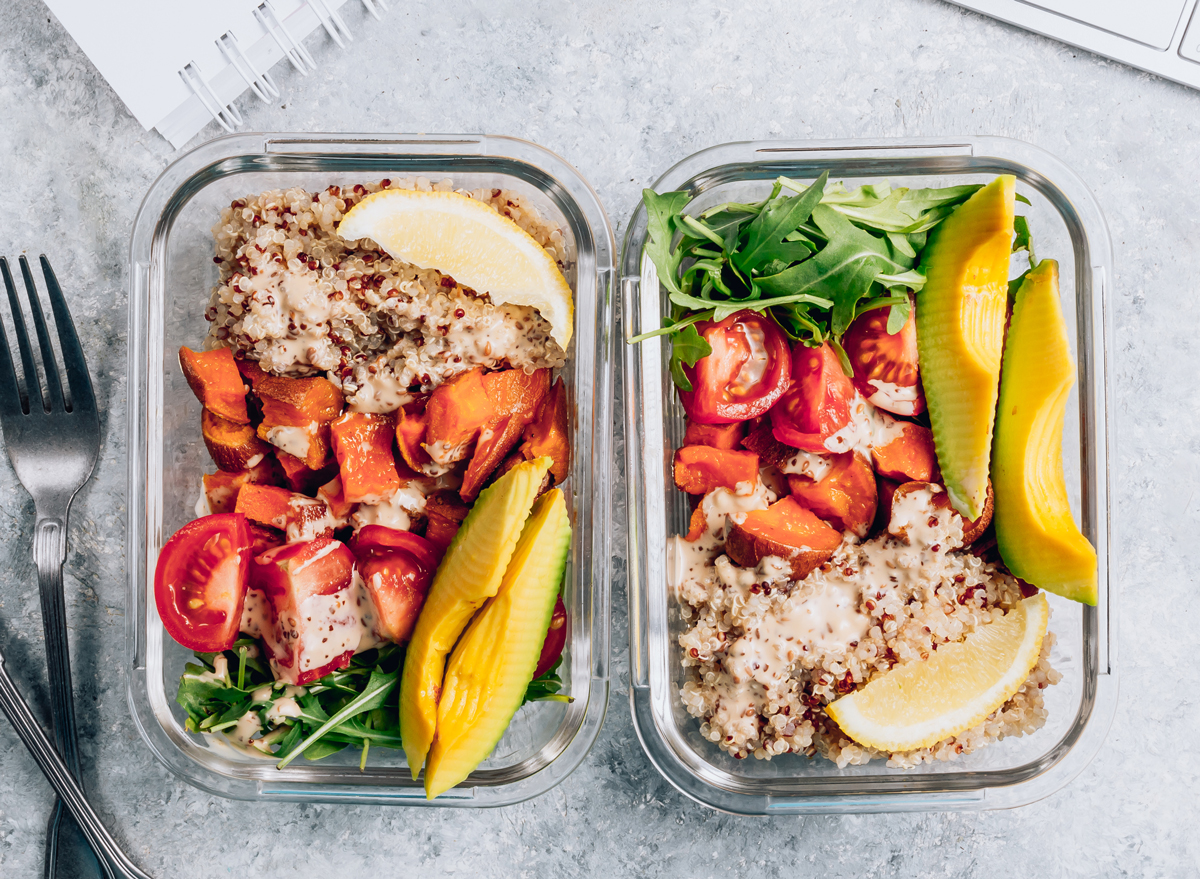
While eating a variety of foods certainly helps you get all of your essential vitamins and minerals, variety can also lead to an unfortunate side effect, according to experts.
“Eating a wide variety of foods can potentially make you eat more and consume a higher amount of calories overall,” says Dr. Josh Axe, D.N.M., C.N.S, founder of Ancient Nutrition, DrAxe.com, and author of Ancient Remedies. “If you don’t get accustomed to the things you’re eating, you’re more likely to eat them for pleasure versus physical hunger, which can result in overeating and weight gain in some cases.”
This problem, known in some circles as the “buffet effect,” can lead to eating past the point of satiety.
“We perceive feeling fuller if we eat a meal that has less variety in its sensory properties, such as saltiness, sweetness, etc.,” says Emily Servante, a certified personal trainer at Ultimate Performance, citing analysis of the National Weight Control Registry showing that decreased variety correlates with decreased BMI. And while Monica Reinagel, licensed nutritionist and host of the Nutrition Diva podcast, notes that in some cases this can be a good thing, offering the example of a crudité platter filled with a variety of veggies (and thus a wider array of nutrients), it can also mean that you eat more unhealthy items.
“We have a staggering variety of foods available to us today, especially in the category of ultra-processed snack foods and sweets,” she says. “And researchers are seeing clear links between that variety and the level of consumption of ultra-processed, nutrient-poor foods.”
If you’re looking for some healthy meal inspiration, these are the easy, at-home recipes that help you lose weight.
It guarantees you’re getting those nutrients.
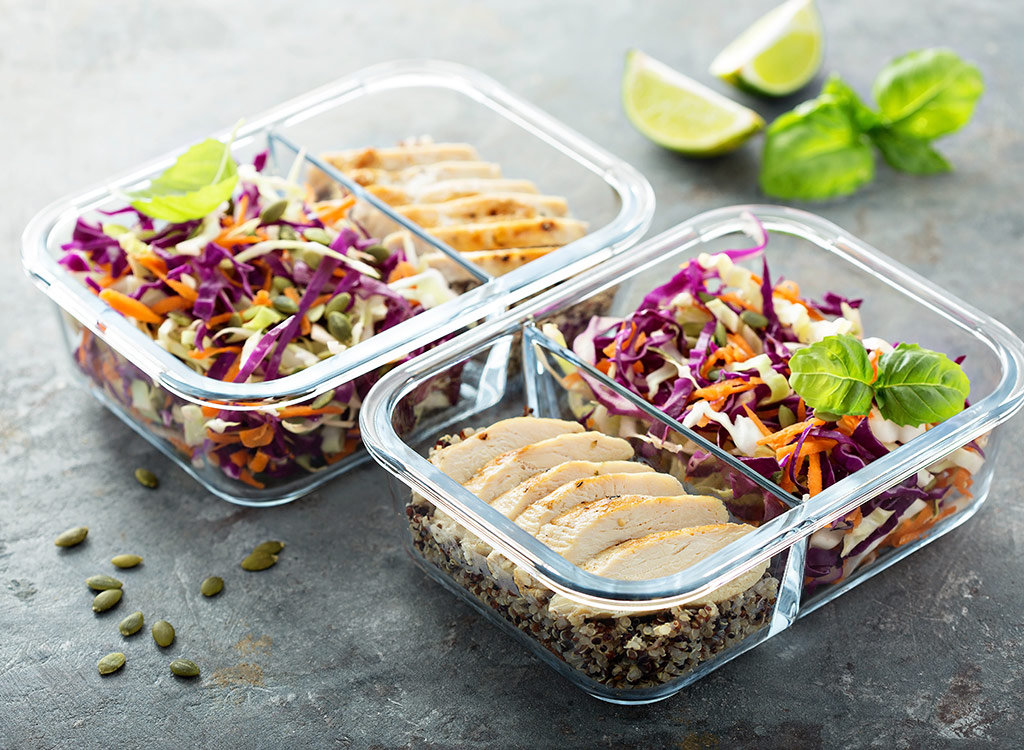
If you’re filling your diet up with the same foods that are all considered healthy options, then you know you’re already setting yourself up for success.
“A diet of a relatively small variety of nutrient-dense foods could easily outperform a diet with a lot of variety but less nutritious choices,” explains Reinagel.
Another benefit? Axe notes that a very varied diet may make it harder to plan and shop for.
“Repeating the same meals over and over tends to simplify the process, so you’re more likely to stick with home cooking versus eating out,” he says. “And eating meals on repeat may also lead to savings when shopping and less food waste.”
You might unknowingly load up on pesticides.
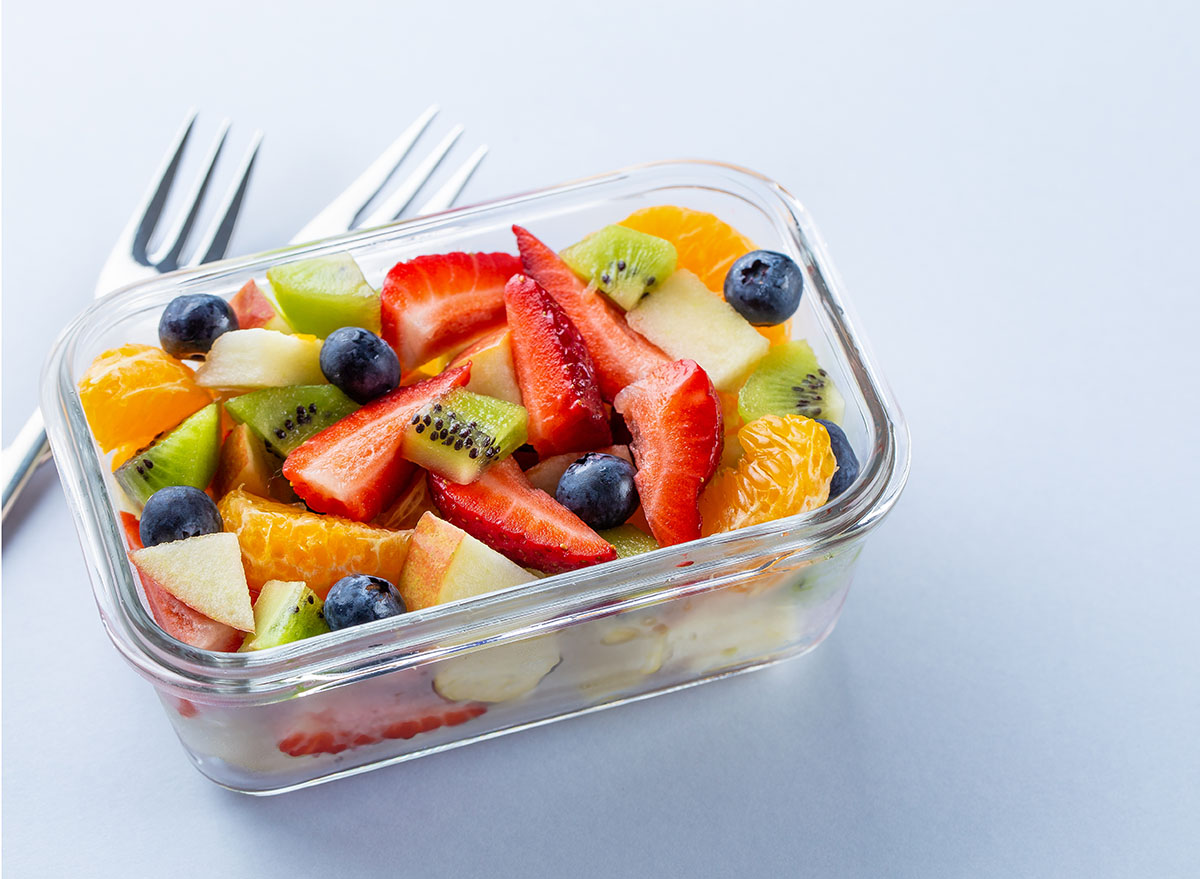
There are, of course, a few downsides of reducing the variety in your diet, one of which is the added pesticide load. That’s why, if you’re eating the same foods day in and day out, you’re going to want to select the best quality you can afford.
“Whether you eat the same thing every day or eat a varied diet, organic will lower your exposure to chemicals and pesticides,” explains Alicia Galvin, RD and resident dietitian for Sovereign Laboratories. Check the Environmental Working Group’s Dirty Dozen and Clean Fifteen lists to see which foods are most likely to be contaminated, and choose organic whenever possible.
Axe agrees, noting that it’s “a good idea to purchase organic versions of the foods you eat most often since this strategy can help to greatly reduce the amount of pesticides and other chemicals you consume.”
In addition to choosing organic, it’s important to be aware of foods that could become harmful in high doses.
“There are situations where eating a very low variety diet might expose you to higher levels of certain environmental contaminants,” explains Reinagel, citing arsenic in brown rice, or “excessive levels of a certain nutrient,” like selenium in Brazil nuts.
To this list, Axe adds highly fibrous veggies like kale and broccoli and some FODMAP foods like onions, cruciferous veggies, apples, beans, legumes, and wheat, which can cause indigestion for some people, especially in large quantities.
Servante zeroes in on seafood as one food to be wary of consuming in large quantities.
“Some fish, such as shark, bluefin tuna, and swordfish, can contain high amounts of mercury and other heavy metals,” she says.
For those adding fish to their regular rotation, she suggests favoring freshwater fish and smaller fish with lower mercury counts, like sardines.
You could be contributing to food intolerances.

Reducing variety in your diet can also have adverse effects on your gut microbiome, according to Kimberly Jacobson, RDN, who notes that research suggests that “when you eat a large quantity of the same food over a long period of time, then your microbiome changes.”
“The importance of having a diverse gut microbiome is overall health benefits,” she adds, “just like it’s important to meet RDA requirements for vitamins and minerals to achieve optimal health.”
And too little variety can also contribute to intolerances and sensitivities.
“Eating a very restricted diet in terms of variety can also increase the risk of food intolerances and sensitivities as your gut may reduce production of the specific enzymes used to break them down,” explains Servante. “When you do reintroduce them to your diet, you may experience discomfort that you would otherwise not have had.”
So how exactly do you get the perfect blend of variety and stability in your daily meals if you’re eating the same foods?
The perfect menu balances enough diversity to reduce the risk of intolerances, toxicity, and malnutrition while also staving off the buffet effect. In practice, this translates to a revolving list of just a handful of meals made with high-quality, whole foods. Here are some tips to help you out if you’re someone who finds themself eating the same foods daily.
Decide how many meals you’re eating every day.
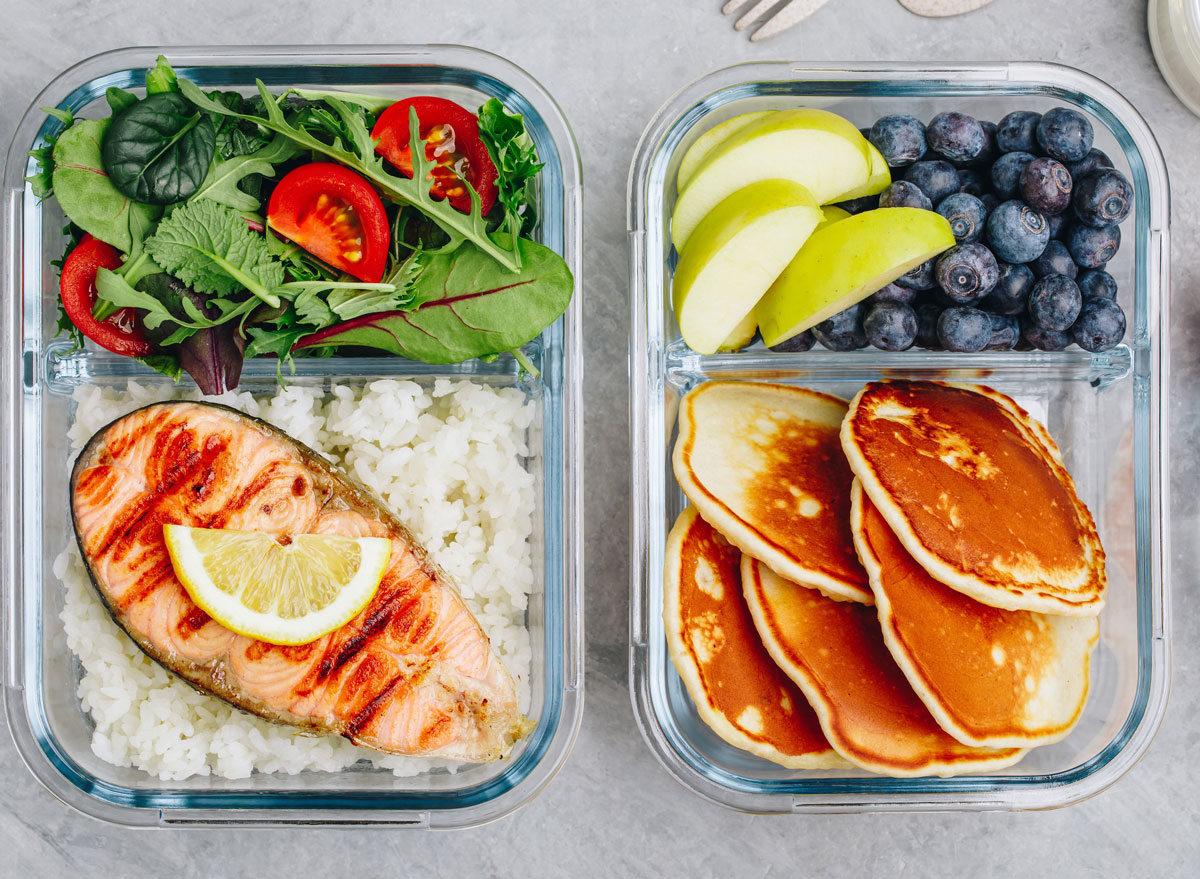
Whether you’re sticking with the traditional breakfast, lunch, dinner routine, opting for six small meals, or choosing a fasting protocol that has you eating just twice a day, deciding how many meals you’re going to eat per day is the first step. In my case, I eat two meals a day–lunch and dinner–with the possibility of a snack of fresh, seasonal fruit or a whole, raw carrot in between.
For each meal, examine your macros.
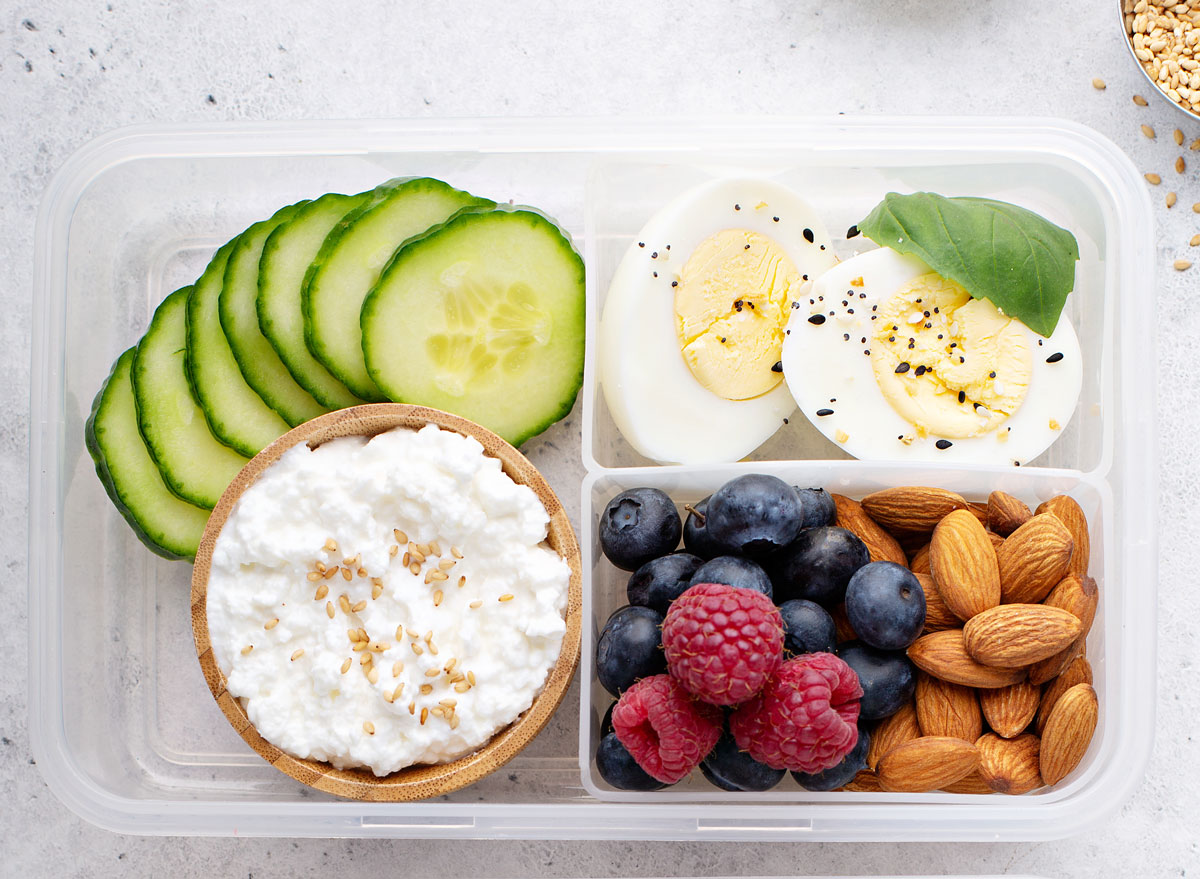
There are three macronutrients every body needs to thrive: fat, protein, and carbs. For each meal, choose one high-quality source of the former two and two or three sources of carbs, bearing in mind that your carb source should also be high in fiber: think avocado, sweet potato, broccoli, or whole grains.
“Not only does a high fiber intake keeping you feeling fuller,” explains Servante, “it is essential for the healthy functioning of your gut microbiota, which affects everything from your mood to your immune system.”
She suggests ensuring that half of every plate you eat be filled with vegetables, preferably at least half leafy greens and the other half as colorful as possible. When it comes to protein, choose sources that offer some overlap of macro- or micro-nutrients, like fiber-rich lentils, lutein-rich eggs, or fish rich in omega-3 fatty acids.
“Omega-3s have been found to have powerful anti-inflammatory effects, as well as help reduce anxiety, depression, and many other medical conditions,” says Servante.
Look deeper at your micros, too.
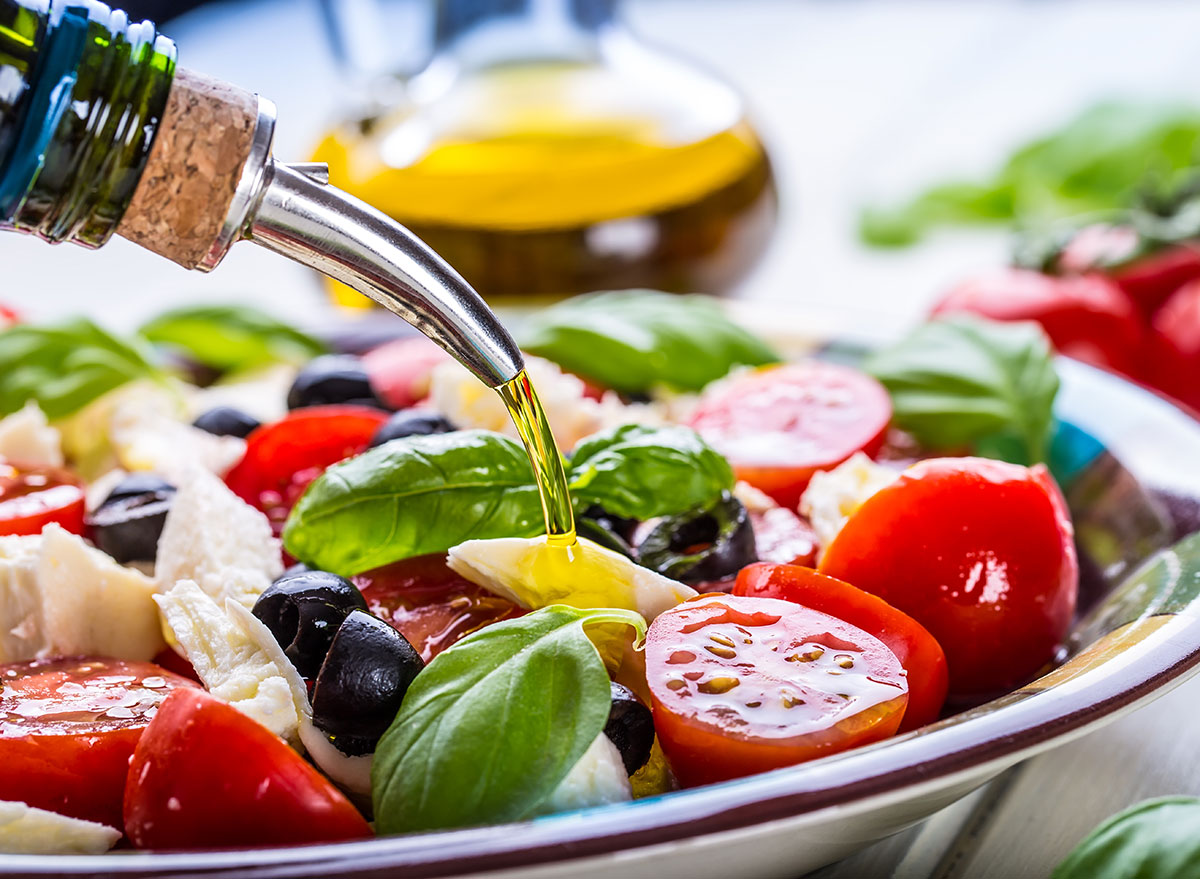
Micronutrients are essential vitamins and minerals, many of which we get from plants. Since each plant has different amounts of these key nutrients, this is where variety is going to be the most important.
“I’d try to rotate through at least three to four different types of veg and two types of fruit (the more dissimilar the better),” explains Reinagel.
A shortcut? Make your plate as colorful as possible.
“For example, vitamin A can be found in orange foods such as butternut squash and carrots, while a good source of vitamin K is dark, leafy greens like kale,” explains Jenny Fowler, a nutrition consultant and Diabetes Prevention Program (DPP) coach with First Mile Care. “On the other hand, while grains have some variety of nutrient composition, they are all high in the B vitamins so you don’t need to pay as much attention to grain variety.”
Axe adds that while all micronutrients are important, “some tend to be missing in people’s diets more often than others.”
“The nutrients you need to keep an eye on most depends on the type of diet you follow. If you’re a plant-based eater, you’ll want to be especially careful about getting enough B12, iron, calcium, and zinc for example,” he says. “If you follow a low carb or keto diet, make sure to get enough vitamin C, fiber, magnesium and other electrolytes like potassium and sodium.”
“Overall,” Axe continues, “some of the most common nutrient deficiencies tied to poor diet quality are: magnesium, iron, potassium, B12, folate, and thiamine, plus vitamin D.”
To this, Reinagel adds calcium (found in chia seeds, sardines, and almonds), and Galvin adds folate, found in leafy greens and beans.
Build a meal “sketch.”
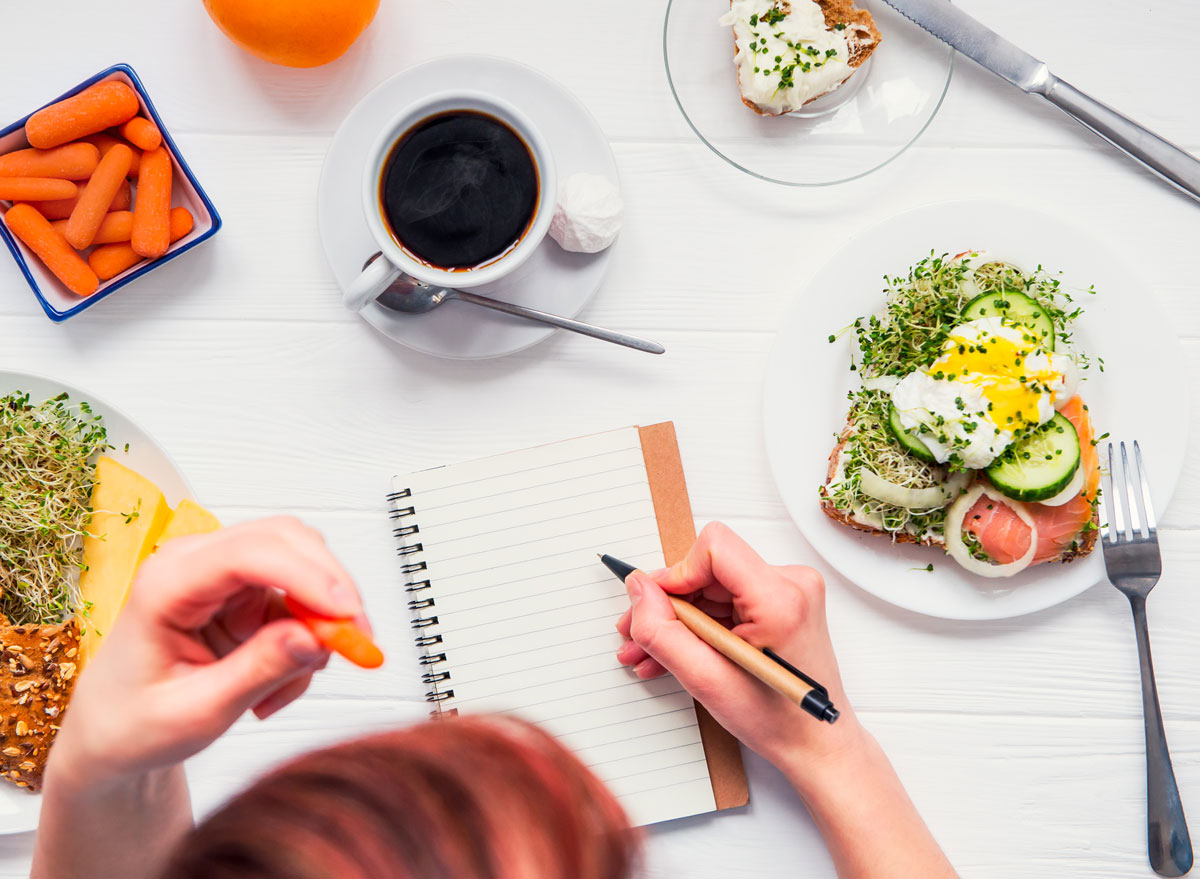
Creating a basic structure of a meal takes the guesswork out of it but also allows you to mix and match.
“Stick with the same basic handful of meals,” suggests Axe, “but also allow for some rotation of ingredients.”
He suggests, for example, committing to a smoothie or yogurt parfait in the morning, switching up the fruit depending on what’s in season. Make an omelet for lunch, but add a variety of seasonal veggies depending on the day. For dinner, choose a meal salad, or a simple plate of roasted veggies topped with a small amount of high-quality protein and fat, like a poached egg and half an avocado.
“The idea is to get comfortable with meals on repeat,” says Axe, “but to use whichever ingredients that are most fresh, budget-friendly, and available.”
Reinagel recommends a “three-day rotation” of meals to ensure that you’re covering all of your nutritional bases, noting “you wouldn’t need to strictly rotate ABCABCABC. You could do AAABBBCCC.”
Stick to the seasons.
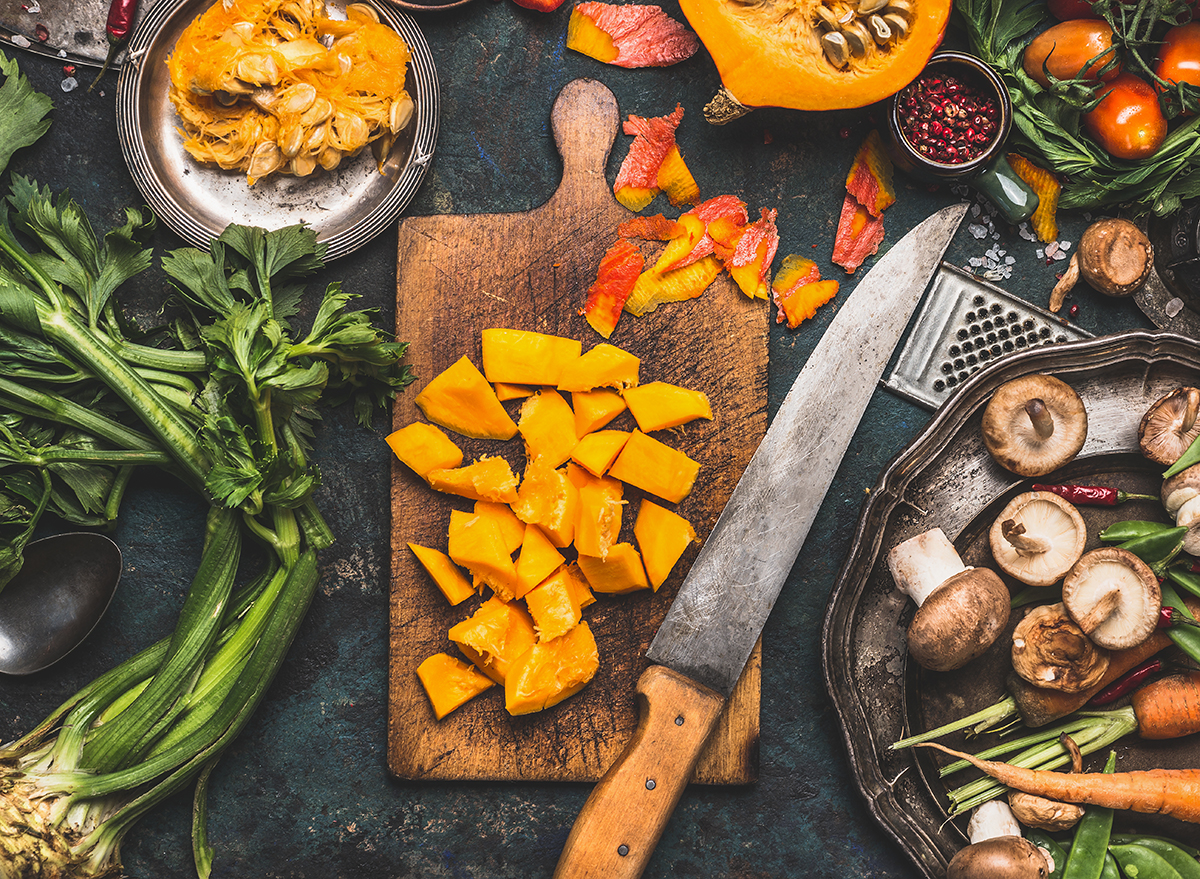
Above all, be sure to change things up seasonally. Not only does seasonal, locally-grown food have more nutrients, it’s also tastier.
“I’d think of it like a capsule wardrobe,” says Reinagel. “When spring comes, we put away our sweaters and get out our short-sleeved blouses. At the same time, perhaps you switch up which 3-4 of vegetables you’re rotating through. Instead of winter squash, brussels sprouts, and green beans, you switch to carrots, asparagus, and snow peas.”
Overall, if you eat the same foods every day, it isn’t necessarily a bad thing. As long as you’re making the right choices. So go get meal prepping!
